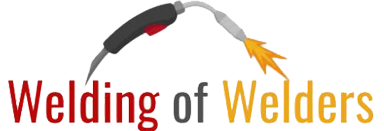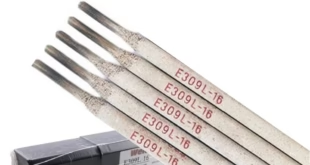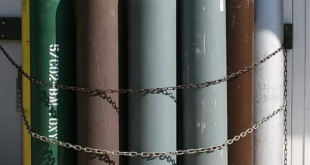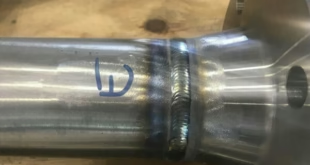Things Every Welder Should Know
Welding is a skilled trade that requires precision, attention to detail, and a solid understanding of the process and materials being worked with. As a welder, it’s important to stay up-to-date on industry best practices, equipment, and safety protocols.

Here are some essential things every welder should know:
1- Types of welding
There are several different types of welding, including gas welding, arc welding, resistance welding, and more. It’s important to understand the differences between these methods and when to use each one.
2- Safety
Welding is a dangerous job, and it’s essential to take the necessary safety precautions. This includes wearing protective clothing, including a welding helmet and gloves, as well as ensuring that the work area is well ventilated.
3- Welding equipment
Welding requires specialized equipment, including a welding machine, welding electrodes, and a welding torch. It’s important to have a good understanding of how each piece of equipment works and how to properly maintain it.
4- Metals and materials
Welders need to be familiar with the different types of metals and materials they will be working with, including their properties and how they respond to heat and pressure. This knowledge is essential for making the right decisions about welding techniques and settings.
5- Welding techniques
There are several techniques for welding, including MIG welding, TIG welding, and stick welding. It’s important to understand the pros and cons of each technique and to practice them regularly to develop your skills.
6- Reading blueprints and schematics
Welders need to be able to read and interpret blueprints and schematics in order to understand the specific requirements of each job. This includes knowledge of welding symbols, dimensions, and tolerances.
7- Problem solving
Welding often requires quick thinking and problem-solving skills, especially when things don’t go according to plan. Welders need to be able to identify problems, assess their options, and make the necessary adjustments to complete the job successfully.
Checklist For Beginner Welder
Here is a beginner welder checklist:
- Read and understand the manufacturer’s instructions for the welding equipment.
- Get proper training and certification in welding safety and techniques.
- Wear personal protective equipment, including a welding helmet, gloves, and apron.
- Clean and prepare the metal surfaces to be welded.
- Choose the right filler metal for the job.
- Properly set up the welding equipment, including the power source and welding torch.
- Use the right welding technique for the job, adjusting amperage and travel speed as needed.
- Inspect the weld regularly during the process and repair any defects promptly.
- Follow all safety procedures, including avoiding hazardous fumes and gases, and avoiding fire hazards.
- Maintain a clean and organized workspace.
- Keep the welding area well-ventilated.
- Stay focused and avoid distractions while welding.
FAQs
What does a welder need to know?
A welder needs to know the following:
- Types of welding processes (e.g., MIG, TIG, stick welding) and their applications
- Safety procedures and personal protective equipment
- Joint design, preparation and fitting techniques
- Welding techniques, such as amperage, travel speed, and filler metal selection
- Welding codes and specifications
What are the 5 fundamentals of welding?
The 5 fundamentals of welding are:
- Heat control
- Arc control
- Penetration
- Fusion
- Weld bead shape and size
What are the 4 things you need before welding?
The 4 things needed before welding are:
- Clean metal surfaces to be welded
- Properly set up the welding equipment
- Select the right filler metal
- Choose the right welding technique
What are 5 facts on welding?
5 facts on welding are:
- Welding has been around since ancient times.
- Welding is used in a variety of industries, including construction, manufacturing, and transportation.
- Welding produces hazardous fumes and gases that can be harmful to the welder’s health.
- Welding requires specialized training and certification.
- Welding technology continues to advance and improve.
What are the 7 hazards of welding?
The 7 hazards of welding are:
- Fire and explosion
- Electrocution
- Burns
- Eye damage
- Respiratory problems
- Noise-induced hearing loss
- Radiation exposure
What are the 11 helpful tips in welding?
11 helpful tips in welding are:
- Wear proper personal protective equipment
- Maintain a clean and organized workspace
- Use the right filler metal for the job
- Know the properties of the metals being welded
- Know the limitations of the welding equipment
- Practice proper welding techniques
- Inspect welds regularly and repair defects promptly
- Use the right welding technique for the job
- Follow all safety procedures and guidelines
- Keep the welding area well-ventilated
- Stay focused and avoid distractions while welding.
Conclusion
In conclusion, welding is a challenging and rewarding trade that requires a solid foundation of knowledge and skills. By understanding the basics of welding techniques, equipment, and safety protocols, every welder can be confident in their ability to produce high-quality work and succeed in the industry.
 Welding of Welders All about Welding and Welders
Welding of Welders All about Welding and Welders



